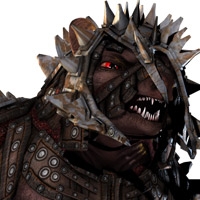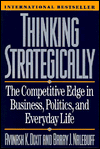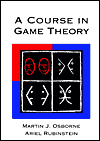Does anyone understand the elections going on? I just
saw something about a “caps lock key” and how that mean the current president
had to go. Ariel, you are from here, what is going on? Indigo, you understand
politics, please? Wolf?
Uh, err, so Michael, what is it like to be
a prince, but to know you earned it through your own merit
alone?
What? That’s not the case. It was not my merit
alone.
But the princes of the Elachi are selected
by merit, aren’t they? Not like things were when I was raised in what they now
call the dark ages. How does it work if it is not your
merit?
Wolf. Think. For just a moment. Take the Amber’s new
baby brother. If he was in consideration, do you think he could
lose?
Why not, it is pure competition, isn’t
it?
Wolf, think of a child trained by the lightwalker. Would he have training no
one else could have? Think of the heritage, of the naming gifts he would have.
Perhaps a small colony of elementals, ten thousand, woven into a cloak? You
know that unbound, they prefer large numbers, but think of ten thousand, each
lending only two percent of their strength to the cloak. That would give him
the force of two hundred elementals? Should Ariel not marry me, I would, of
course, die childless. I might well give him my
sword.
At that point, who could match such a child in skill,
power and ability? With the role models he or she would have do you think they
would have greater knowledge and wisdom as well?
Now, the families of the princes are not quite so
blessed as such as a child would have, but they have heritage, skill, knowledge
and connections. Training, heirlooms, special knowledge and family members that
provide training and insight at home that few can match.
More importantly, there is a heritage. The call is one
of service and duty. I have my fathers before me and their fathers to show me a
way of acting, values, history. I have a name that I value, family whose values
matter to me. To take bribes, to turn away from duty would mean to abandon
family, the commitment of over a thousand years of my forbearers, would mean a
disgrace and a turning away.
Wolf, there is nothing I value
more.
So others have no
chance?
No, there is a possible chance. There are those with
drive, desire, who put in time and effort and whose families back them. Then,
some are taken in and nourished by the houses, becoming their wards and folding
in to their lines. I have a brother who came into our home that
way.
But I have no illusion that it is by my virtue alone
that I am a prince of the Elachi. I am very much aware that I rest on inherited
merit, not my own.
Oh. Guess it is like that, only easier for
Parakyle, who is a prince of the blood.
Err Wolf, I’ve been listening. I wouldn’t say so. Of
course I inherited the kingdom, but our kings stand for election. They can lose
their place and standing from the voice of the people, and once lost, it is
rarely regained.
Parakyle, you stand for election? Like the
Norse kings, kings like Harold Hardrede?
Wolf, I don’t know how they did their elections, but
upon elevation, the voice of the people is called for. If they reject a prince,
he is not confirmed as a prince, and another is called. So, by birth and
primogeniture, I stood for confirmation, but the people could have rejected
me.
Ok, Parakyle. So, once you are confirmed, is that
it?
I wish. As a Prince, I have duties. Mine, at this
time, are limited, we expect the princes to fulfill many duties much like the
Elachi do. You could say at this time I am one of the Prince-Champions and am
in the time of trials. The people are secure. But I am open to challenge,
should I not follow the hero path or should I not fulfill other
duties.
We generally have brother princes who serve. My brother
serves as law giver, a sort of equity judge and administrator, I serve as
champion. But the moot could be called, a challenge issued and if the voice of
the people turned against one of us, and if we failed, the one who failed would
be removed from his or her place.
Wolf, it can be stressful. It is why the princes
generally do not have expansive agendas. The counsel of elders legislates, our
judges judge according to our volklaw. The princes administrate, “law giver” is
how it translates, but a prince rarely gives laws, though the details of
administration creates the real meaning of laws. Hmm, chief of police might
almost be a better description. Perhaps “law deliverer” – the one who delivers
the law – that might be better for what he does.
The champion-prince is a war leader, if there is a war,
but, again, he would rarely make the decision to go to war, but instead would
have the counsel bring the matter before the moot of the people and then
implement what is decided.
As long as a prince is not corrupt or stupid, as long as
they do not step outside of the narrow role, they are unlikely to be challenged
and it is unlikely that a challenge will succeed.
But to be confirmed at first, the people have to know
you, respect you, and not see a better opportunity clearly available. That
means a prince-nominate need be prepared better to serve than those likely to
rise up in challenge.
Parakyle, are princes challenged
often?
Of course not Wolf. A challenge looks like an act of
pride and vainglory unless it succeeds. The princes are trained from early age
and our house keeps and nourishes its alliances and always has. In making the
decision the moot looks to the house, its tradition, its history and alliances.
The alignment of the houses is always important. Marriages, fosterage, cadet
lines, history, we are a long lived people.
Now, a house member might challenge, there was a time
some thought to raise up my sister in a challenge, but she turned away from that
as the war waxed hotter. Someone might be disabled, and not acknowledge it and
need to be removed. Another might let power and authority go to their head or
seek bribes to corrupt justice.
Does that happen often
Parakyle?
No Wolf. But we are not the only people of the snow
dwarves, our steddings and holdt are not the only one. The moots are found in
more than one continent, more than one world. There are those who have been
thrown from their places, sometimes by the force of arms of the moot. Everyone
knows the tale of Sirrian Bentlaw or Elinias the Crooked and that of Smirri the
Feeble.
They will not tell such tales of
me.
But, answering your question, it is not easy, but it is
not hard. It would be a weak candidate and a solid challenge, supported by many
houses, rarely would such a challenge arise without warning. The shift of power
and of authority would be felt in the tales of the people, in the market and in
the houses, in the stedt moots and they prepare for the folkmoot. It would
probably be heralded by failures in the training and challenges of the
prince-candidate as they trained and prepared.
So, Parakyle, do the princes always have to
win every contest?
No, Wolf no. But they have to be respectable. A
champion must do well in the contests of strength, a law bringer must do well in
the contests of knowledge and judgment. And a Prince might be careful of just
which and what kind of contest they enter. I would never enter the sprinting
contests, but no one would care to face me in a trial of live weapons with the
axe. My brother has the gift of truthtelling, and the eye of the north.
You can guess that he always can tell the truth when it
is told or not. No one would expect a contest to allow him to enter, the others
would walk away. Someone could equal him, perhaps, but it would be like a math
contest with one of Ariel’s computers. Not to mention, some rituals follow the
blood lines in a stronger fashion.
As long as the people might need the heropaths and
rituals, to draw strength from history, myth and magic, a prince will always
provide the people with a benefit, an advantage.
It is a balance between peace and times of trial, risk
and trade, ability, skill and inheritance.
Do you think humans could live like the
lightwalkers do?
I doubt it. Our society lives on its princes and the
ability to see the truth. Your society needs layers in this world to protect
from fraud and to find criminals. Mirrors would probably kill many humans. I
don’t know, but I can’t see anything but anarchy. The houses have a great deal
of autonomy. Our laws are fairly simple.
Princes champion the weak who do not have houses to
support them, they discern truth, they view the light of others, they track
wrongdoers. They hold court and judgment between outsiders and the houses when
there are claims or embassies.
The houses are like clans and septs and great houses.
They have their own traditions with the force of law within them.































